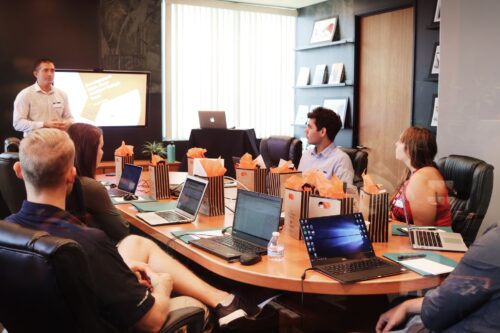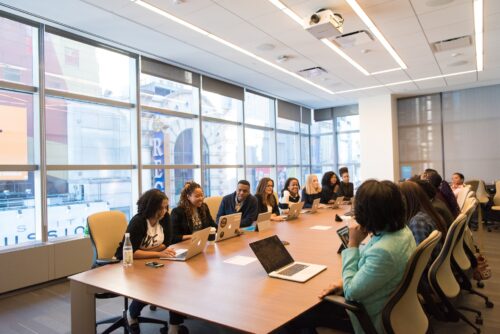Workplace resilience training in Western Australia is becoming increasingly important in today’s fast-paced and ever-changing work environment. Resilience refers to the ability of individuals to cope with and bounce back from adversity, stress, and challenges. With the rising demands and pressures at work, it is crucial for employees to develop and enhance their resilience skills to maintain optimal mental health and well-being.
Organisations in Western Australia are recognising the significance of investing in workplace resilience training for their employees. By providing such training, employers aim to create a positive work culture that promotes mental health, reduces stress levels, and improves overall job satisfaction. This, in turn, leads to increased productivity and employee engagement.
Workplace resilience training programs typically incorporate various strategies and techniques to help individuals build resilience skills. These may include stress management techniques, mindfulness exercises, self-care practices, and effective communication skills. By equipping employees with these tools, organisations are empowering them to overcome workplace challenges, adapt to change, and maintain a healthy work-life balance.
There are several professional trainers and organisations that specialise in delivering workplace resilience training Western Australia. These trainers are experienced in understanding the unique challenges faced by employees in different industries and tailoring their programs accordingly. Whether it is a small business or a large corporation, investing in workplace resilience training can have long-lasting benefits for both employees and employers.
It’s good to be able to handle stressful situations and hostile situations at work, but resilience might not be a sufficient solution if your workplace in Western Australia (WA) is straining your mental health. In order to be able to recognise the reasons for our stress in the first place, we need to be able to identify the factors that are causing it, and then proceed to take steps in order to get under control. The most resilient people are well-equipped with resources and skills to manage stress, conflict, and pressures at work, as well as a strong support network that assists them. Consequently, it is imperative that workplaces invest in developing a resilient mindset.
Developing a workplace culture that works for you
We live in a culture that is surrounded by a multitude of things and influences us constantly. There are a number of characteristics which describe a workplace culture, including shared values, beliefs, attitudes, and a set of assumptions that people in a workplace share. There are various factors that shape this, including a person’s upbringing, their social and cultural contexts. Nevertheless, there is a great deal of influence on the workplace culture to be found through the leadership of the organisation as well as its strategic organisational direction and management. An environment characterised by a high level of teamwork, improved morale, increased productivity and efficiency, and enhanced employee retention are all benefits of a positive workplace culture. The performance of the employee, the satisfaction of the job, and the collaboration at work are all boosted. In addition to this, a positive working environment will reduce employees’ stress levels in the long run.
The challenges of challenging times test the culture of an organisation. It is very important that leaders review their decisions carefully. Employees’ actions are immediately assessed by the rest of the organisation based on their alignment with the organisation’s values.
The culture of the workplace and its resilience
In order for an organisation to be resilient, it is important for its employees to be able to observe and understand the organisational culture and values in action.
In fact, employees at these organisations believe their organisation would bounce back from setbacks quickly. Even when things are uncertain, they’re confident they can keep doing what they’re doing.
Characteristics of a resilient culture
-
It’s easy to manage conflict when you know how.
There are a variety of ways in which people react during uncertain times. It’s common for some people to keep their heads down and lay low. It can seem impossible to avoid conflict when tensions run high. The first response is to run, the second is to fight. For an organisation to succeed, it’s essential to create a culture that helps people solve differences constructively.
In challenging times, organisations can be paralysed by a lack of psychological safety or a lack of effective conflict management. As a result of an inability to openly discuss alternatives, they make less than ideal decisions.
-
A lot of people take action in a timely and decisive way.
When there’s a crisis, execution is everything. The leaders may plan and discuss multiple scenarios, but they must take decisive action throughout the process. It is in cultures in which timely decisions are common and short- and long-term demands can be effectively balanced that companies succeed in challenging times.
Despite some people’s attempts to view doing nothing as better than doing the wrong thing, this actually leads to the opposite outcome. Leaders who take action only when absolutely necessary or wait too long to respond in a crisis can frustrate people. A quick and caring response, however, makes employees feel proud, appreciated, and energised.
When not governed by a set of guiding principles, making decisions can be chaotic and random, which increases stress. Leadership can lose employee trust if decisions are taken too slowly.
-
Change is hard, but people support each other.
In challenging times people support one another through organisational changes. During a crisis situation, many changes can occur at a rapid pace. Workplace practices are changing to keep employees safe and healthy. Remote employees, new family situations, or new family situations may affect them.
In challenging times, organisations with strong support networks can respond best to the multitude of changes introduced.
Having the right resources in place or being able to get them quickly is important from an organisational perspective. It means having honest conversations with managers and teams about what people need. Additionally, employees can feel cared for and supported and be able to reach out for feedback and express needs if they want to.
What kind of culture do organisations and leaders need to create in order to effectively deal with challenges?
As a matter of fact, organisations that are best positioned to respond to a challenge have reinforced the right cultural attributes earlier on. The ability to manage conflict, respond in a timely manner, and support one another through change are second nature for these organisations. People don’t think of behaving any other way since these ways of working are so prevalent in our culture.
Resilience can be learned by individuals, and it can be developed by organisations. Make your employees more resilient today by understanding their resilience.
There is no difference in the quality of learning whether you learn in person or online. Providing practical training courses covering everything from mental health to developing resilient mindsets for organisations who are interested in improving development needs through our trusted experts, WA offers a wide range of WHS and Training Compliance Solutions.
WHS and Training Compliance Solutions caters to the Perth Metropolitan region, the Kimberley region, Pilbara region, the Midwest region, the South West region, and the Great Southern region of Western Australia. It is our privilege to offer quality training courses and to have experienced trainers ready to assist businesses in building their resilient employees.
A Resilient Mindset program builds emotional intelligence
Developing A Resilient Mindset program builds emotional intelligence so we can deal with stress, sadness, anger, and everything else that affects our mood.
There is a difference between being resilient and being tough. Resilience involves bending without breaking, and then rebounding. Through the Developing A Resilient Mindset course, participants learn how to build resilience skills through the process of recovering, rebuilding and growing from difficulties. This course will assist them in managing their emotions and in making informed decisions about their future. Furthermore, they will learn how to be more agile so that they are prepared to adapt to changes both at work and in their personal lives.
As an Australian training provider, WHS and Training Compliance Solutions provides services in Western Australia. In WA, we provide assistance to organisations seeking to enhance their people’s emotional intelligence.
Through our workshops, your employees develop skills that enable them to better connect with one another. A successful career will provide them with fulfilment and happiness at work.
There is nothing complicated about how we work. Let us show you how easy it is to book a training session with us in Western Australia.
In conclusion, workplace resilience training in Western Australia is a valuable investment for organisations looking to foster a resilient workforce. By providing employees with the necessary skills and tools to cope with adversity and stress, employers can create a positive work environment that promotes mental well-being and productivity. With the help of professional trainers, organisations can design customised resilience training programs that address the specific needs of their employees.
Access Psychosocial Hazards Books from Amazon: Psychosocial Hazards












